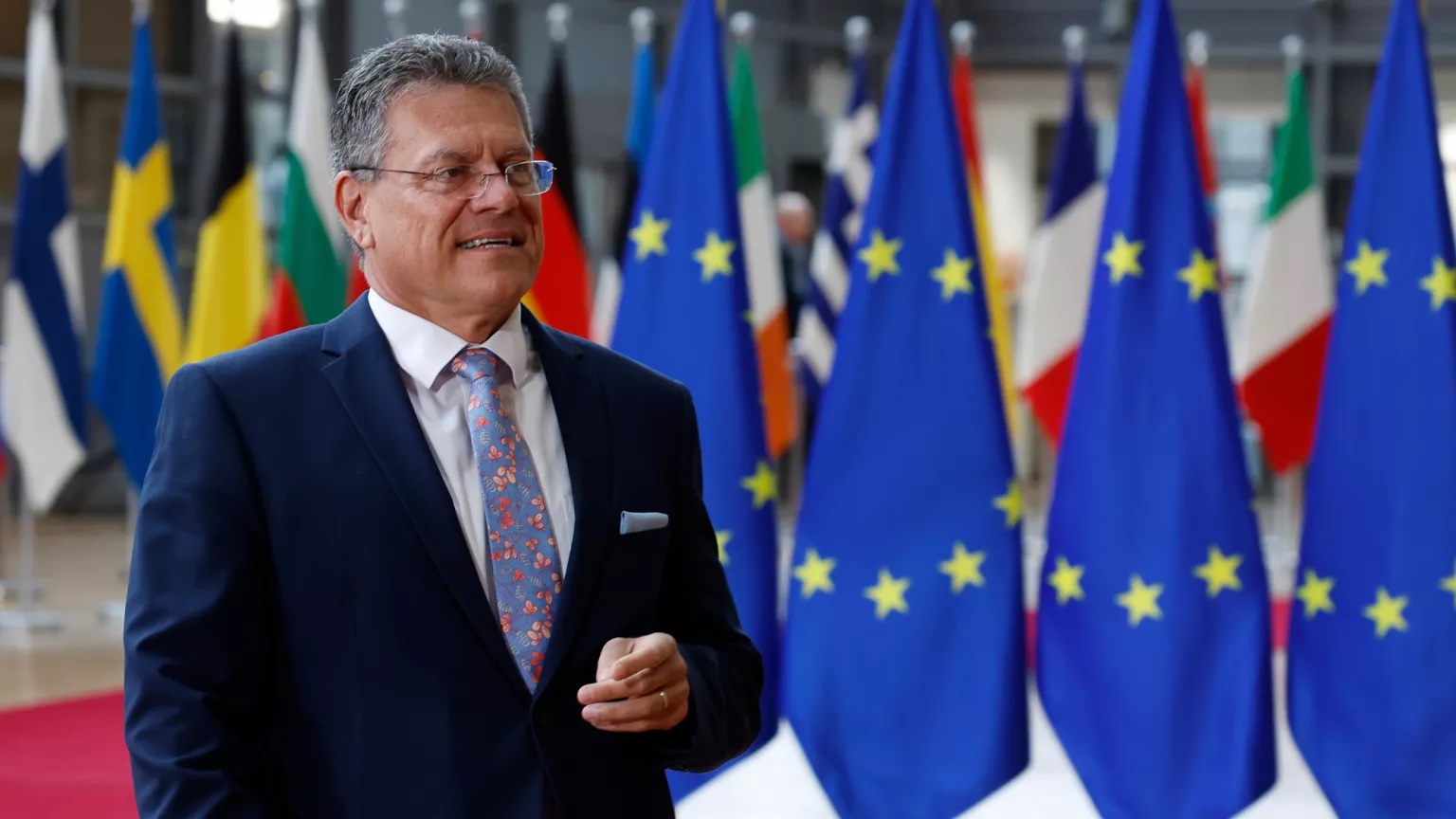The European Union’s trade commissioner on Saturday, May 24, 2025, responded firmly to Donald Trump’s threat of 50% tariff on all EU goods, stressing that respect, not threats, is key to any future trade deal with the US.
Trump’s warning came after expressing dissatisfaction with the slow progress of trade negotiations between the two parties.
He stated that the new tariffs would take effect starting June 1.
EU trade chief Maroš Šefčovič emphasized the bloc’s commitment to reaching a fair agreement, posting on X after a phone conversation with U.S. Trade Representative Jamieson Greer and Commerce Secretary Howard Lutnick.
“The EU is fully engaged and committed to securing a deal that works for both sides,” Šefčovič wrote.
“The European Commission remains ready to work in good faith. EU-US trade is unmatched and must be guided by mutual respect, not threats.
We stand ready to defend our interests.”
Trump had earlier posted on his platform Truth Social, claiming the European Union was established primarily to exploit the United States economically.
He expressed his frustration with the ongoing trade talks, asserting that negotiations were going nowhere.
He also argued that the U.S. has a $250 billion annual trade deficit with the EU.
Trump clarified that the proposed tariffs would not apply to products manufactured within the United States, suggesting this might incentivize European firms to invest in American production.
In remarks to the press, Trump added, “I’m not looking for a deal – we’ve set the deal.”
However, he hinted he might consider delaying tariff implementation if a significant European investment in the U.S. were announced.
The EU remains one of America’s largest trading partners.
In the previous year alone, it exported more than $600 billion (€528 billion; £443 billion) in goods to the United States while importing $370 billion worth.
According to U.S. government data, tariffs have already been a factor in recent trade relations.
On 2 April, the U.S. imposed a 20% reciprocal tariff on most EU imports, which it then reduced by half a week later to encourage dialogue.
Despite this reduction, Washington has kept 25% duties in place on steel, aluminum, and vehicle components.
It is also threatening to extend tariffs to additional sectors such as pharmaceuticals, semiconductors, and other high-tech goods.
In the same press conference, Trump also threatened to impose a 25% tariff on Apple and Samsung phones purchased by American consumers, suggesting this could take effect by the end of June.
His statements triggered declines in major U.S. and European stock markets, according to the Associated Press.
European leaders reacted with disappointment and concern.
France’s trade minister, Laurent Saint-Martin, criticized the move, saying Trump’s threats only hindered the negotiation process.
“We are maintaining the same line: de-escalation, but we are ready to respond,” he wrote on X.
Italy’s foreign minister, Antonio Tajani, reiterated the EU’s objective of achieving “zero-for-zero tariffs,” underscoring the need for balanced and reciprocal trade arrangements.
Meanwhile, Dutch Prime Minister Dick Schoof, speaking from The Hague, supported the EU’s diplomatic stance.
He also suggested that Trump’s announcement might be part of a broader negotiating strategy.
“We have seen before that tariffs can go up and down in talks with the U.S.,” he noted.
Irish Taoiseach Micheál Martin labeled Trump’s proposal as “extremely disappointing,” highlighting the broader consequences of escalating tariffs.
“Tariffs at the level suggested would not only push prices up, they would grievously damage one of the world’s most dynamic and significant trading relationships, as well as disrupting wider global trade,” Martin warned.
He emphasized that negotiations, rather than unilateral measures, are the only sustainable path forward.
German MEP Bernd Lange, chair of the European Parliament’s trade committee, issued a stark warning about potential countermeasures.
Speaking to Die Welt, Lange stated, “We will not allow ourselves to be pressured and will objectively attempt to begin negotiations next week.”
However, he added that if talks fail, the EU is prepared to introduce counter-tariffs to neutralize the economic harm caused by U.S. actions.







